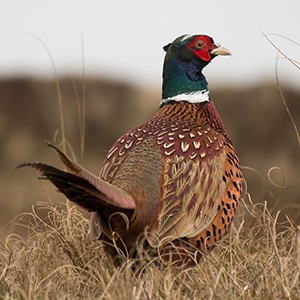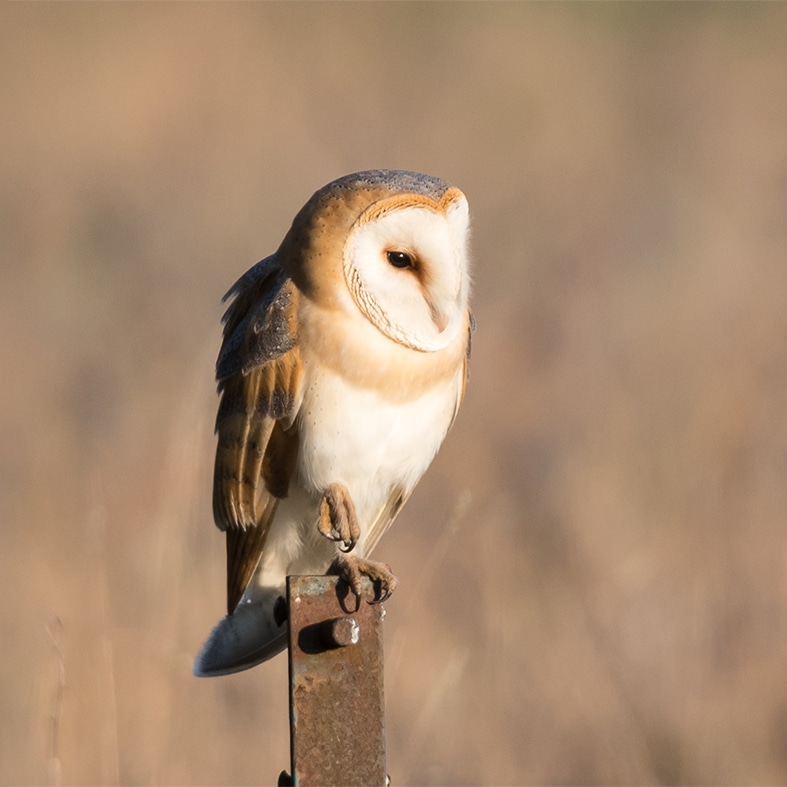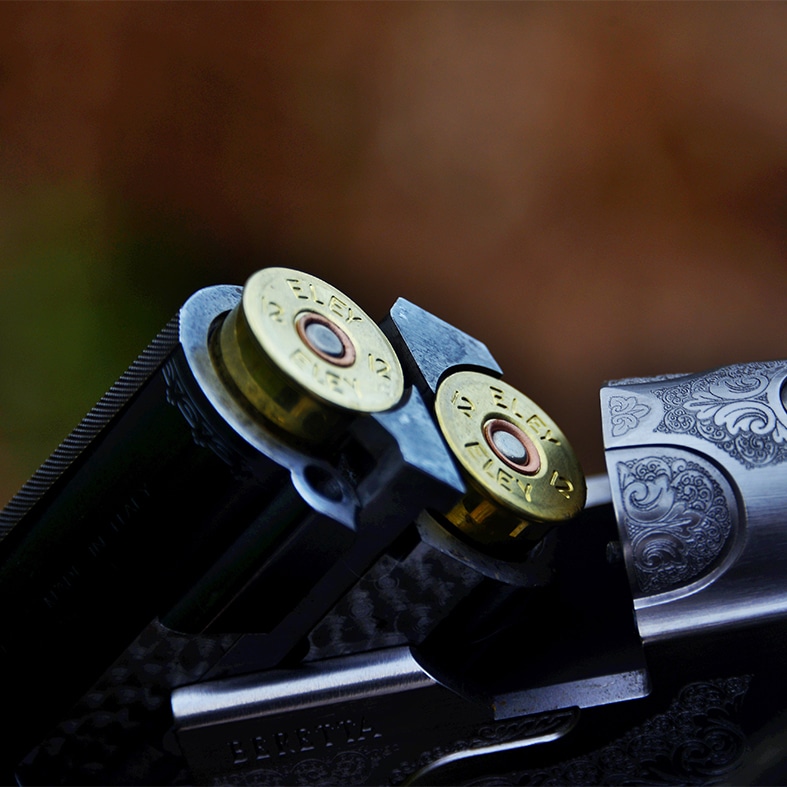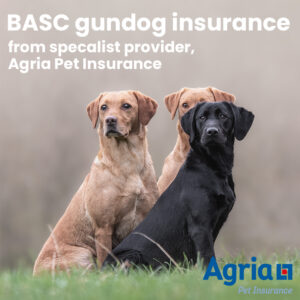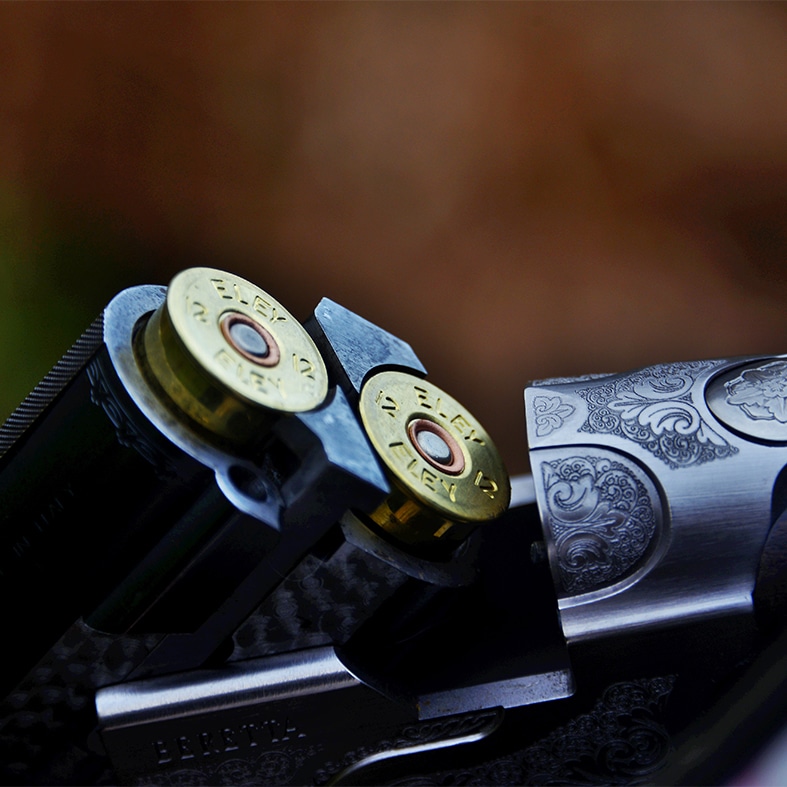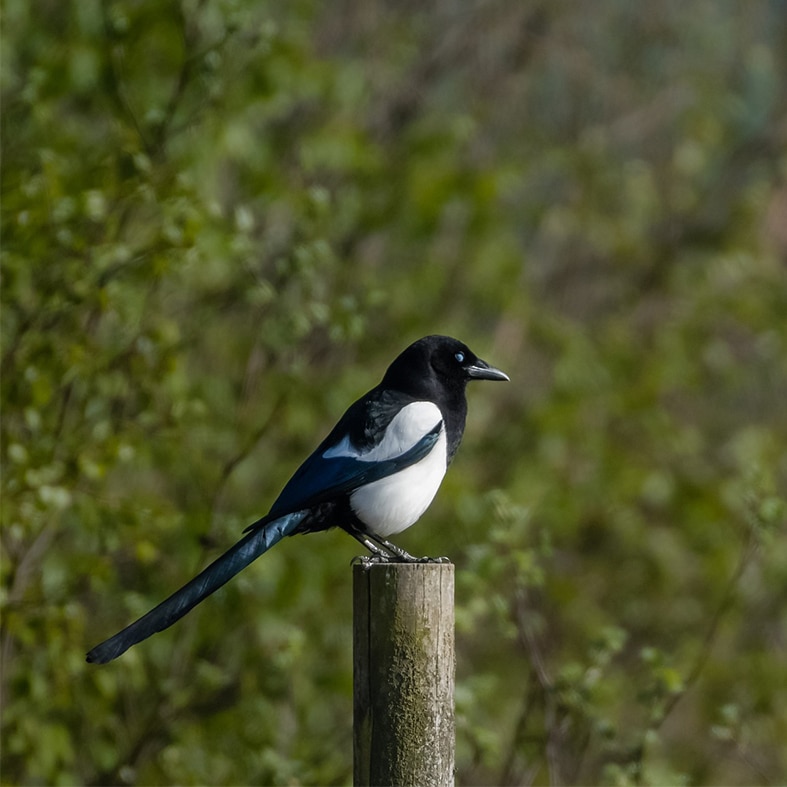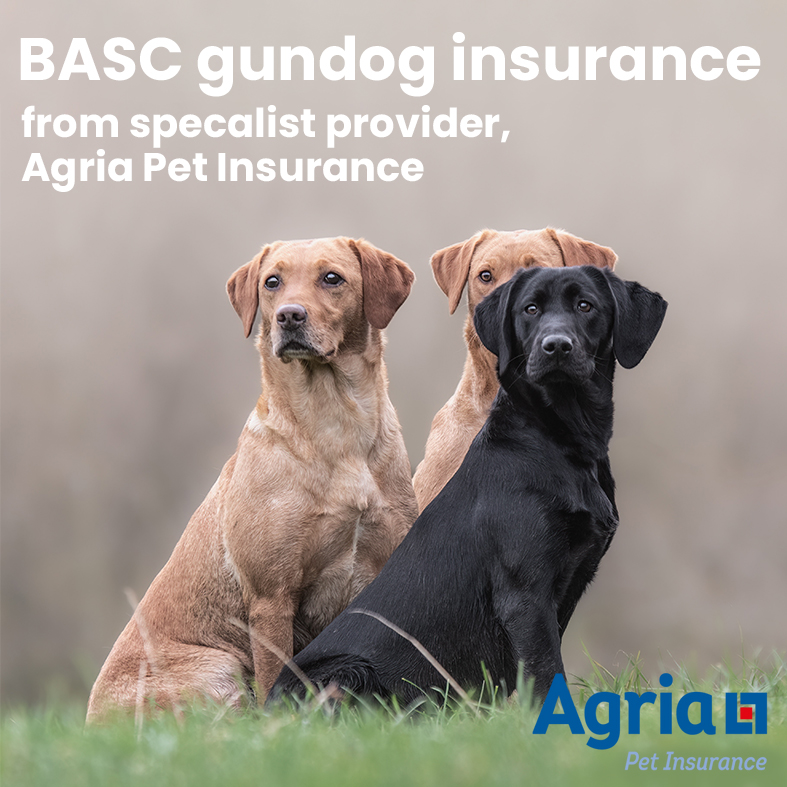Avian influenza
All the latest news, information and guidance related to avian influenza.
What is avian influenza?
Avian influenza (AI), also known as bird flu, is a viral infection that primarily affects birds. It spreads from bird to bird by direct contact or through contaminated body fluids and faeces. It can also be spread by contaminated feed and water or by dirty vehicles, clothing and footwear.
There are two types of avian influenza: low pathogenic (LPAI) and high pathogenic avian influenza (HPAI). LPAI is not normally a serious condition (mild respiratory symptoms) but can mutate into HPAI.
Good biosecurity is an essential defence against diseases such as AI and is key to limiting its spread during an outbreak.
When considering biosecurity on a shoot we should be looking for ways to reduce:
- close contact between wild birds and game birds;
- the risk of transmission onto a shoot from another shoot by the Guns/beaters/pickers-up; and
- the risk of spreading the disease on site between pens/drives/beats.
Where is the situation right now?
Updated 4 February
BASC is reminding members and others to remain vigilant and be aware of the symptoms of the disease and to follow the latest biosecurity advice. BASC has produced some template biosecurity signs for use, which can be downloaded using the following links:
Download sign 1 here
Download sign 2 here
Download sign 3 here
Download sign 4 here
Avian Influenza Prevention Zones
On 6 November 2025, the Avian Influenza Prevention Zone (AIPZ) in England was updated to extend mandatory housing measures to all areas.
On 13 November, the AIPZ in Wales was also updated to include mandatory housing measures. Additional biosecurity requirements were introduced for the gamebird sector.
These measures (in England and Wales) apply to those who keep more than 50 birds, and also those who sell or give away eggs or poultry products (even if they keep less than 50 birds).
If you keep less than 50 birds and they are for your own use only (for example you do not sell or give away their eggs or meat), you do not have to house them but other relevant elements within the AIPZs must be complied with.
The AIPZ in Northern Ireland was also updated on 6 November 2025 to introduce mandatory housing measures for all kept birds and poultry.
An Avian Influenza Prevention Zones (AIPZ), which requires enhanced biosecurity for all bird keepers, remains in place in Scotland.
In addition to complying with any relevant AIPZ requirements, BASC is also reminding all bird keepers of the legal requirement to register details of their birds, regardless of the number kept, with only very limited exceptions. Registration is essential for effective disease control.
Additionally, BASC advises that anyone keeping birds should maintain relevant records relating to their health and welfare. Good record-keeping can help identify issues early and support prompt intervention.
- medium (event occurs regularly) (with high uncertainty), where stringent biosecurity is consistently applied at all times.
- Very high (event occurs almost certainly) (with low uncertainty), where there is suboptimal or poor biosecurity.
The risk level of HPAI H5 in wild birds is currently assessed as very high (event occurs almost certainly).
Current cases and disease control zones
The first case of HPAI H5N1 of the 2025/26 outbreak season was confirmed in:
- England on 11 October 2025
- Wales on 25 October 2025
- Northern Ireland on 9 October 2025
Scotland on 12 November 2025
Further information on current cases and disease control zones can be found on the Animal and Plant Health Agency’s interactive map here.
Defra has produced posters for land managers and local authorities to warn the public when there is a risk of bird flu in an area. These can be found here.
You can also find Defra guidance if you keep gamebirds here: Bird flu: rules if you keep gamebirds – GOV.UK
What to look out for
There are many symptoms of AI, depending on the strain and the species infected. Click here to read the government’s advice on how to spot AI. If birds are in poor condition, it is most likely not bird flu. If in any doubt, speak to your vet.
If I think my gamebirds have AI, what should I do?
This will depend on whether the birds in question are captive or wild.
Poultry and captive birds
AI is a notifiable animal disease. If you suspect any type of AI in poultry or captive birds, you must report it immediately by calling the Defra Rural Services Helpline on 03000 200 301. In Wales, contact 0300 303 8268. In Scotland, contact your local Field Services Office. In Northern Ireland, call the DAERA helpline 0300 200 7840.
Failure to do so is an offence.
If you suspect your birds are infected with any disease, contact your specialist gamebird vet immediately, who will advise you on what to do.
Wild birds
Details of how to report AI in wild birds (including previously released gamebirds) can be found from Defra here.
Do not pick up or touch wild birds you suspect have AI until after you have contacted the relevant agency above and they have given you advice.
Not all birds will be collected. The criteria for which birds are collected are adjusted to increase or decrease the sensitivity of surveillance.
Can I still go shooting?
Following a confirmed case in poultry or other captive birds, disease control zones are put in place. There are a number of conditions and rules which must be followed whilst these zones are in place.
While shooting can continue in these disease control areas, the release of gamebirds is prohibited.
Further advice relating to gamebirds and avian influenza can be found here.
Catching up
BASC endorses the advice issued by Aim to Sustain which strongly recommends that anyone catching-up gamebirds follows a minimum 21-day standstill or quarantine period before any birds caught-up are moved off the premises.
Birds should remain in the holding pen/building for 21 days after the last caught-up bird was introduced before being moved. In this context, being moved means moving the birds to a new premises, shoot, game farm, or other holding pen than where they were caught-up.
In England and Wales catching-up is legal until the end of the shooting season (1 February). In Scotland it is legal until 28 February. Catching-up is illegal after these dates.
In December 2022 Defra conducted a risk assessment relating to catching up gamebirds and as a result the Avian Influenza Prevention Zones (AIPZs) in force across the UK were amended. These amendments included legal requirements for a standstill or quarantine period of 21 days before caught gamebirds could be moved to a new premises. This requirement was in line with many other disease control policies and 21 days was deemed sufficient for any presence of avian influenza to become noticeable.
Whilst there is an improving picture in relation to avian influenza the risks have not gone away, and the shooting sector must continue to play its part in combatting the disease. Following such measures would help combat the spread of the disease if a case was confirmed in caught-up birds, (in 2023 there were no cases of AI that resulted from catching-up). Such precautions should cause limited disruption to those who catch-up gamebirds for breeding purposes.
There are different types of control zone including a 3km Protection Zone (PZ), a 10km Surveillance Zone (SZ), or a 3km Captive Bird (Monitoring) Controlled Zone (CBMZ) which can be put in place following a confirmed case of Avian Influenza (with kept birds).
If you are in a PZ or an SZ you are likely to still be able to catch-up birds, but you cannot move caught-up birds off your premises until the zone has been lifted and you are no longer restricted. A CBMZ does not restrict bird movements, but best practice would be to treat it as if it does. The closer you are to the infected premises that triggered the zone the greater the risk of catching-up infected birds.
Remember that if any part of your premises is in a disease controls zone, then the whole premises is deemed to be in the zone. You can check if you are affected by any of the disease control zones by looking at the APHA interactive map here If you click on the search icon in the top left corner you can enter your postcode and see your exact location on the map.
Movement from outside, into an AIPZ or an AISZ would not be allowed unless licenced by APHA. A CBMZ would not prevent this but as above, best practice would be to avoid doing this.
There is no law preventing this, but common sense suggests that it will be very risky. Defra, Scottish government and Welsh government have previously strongly advised keepers not to catch-up if they are in an area known to have, or have had, AI.
As soon as the birds are caught-up and under your ‘control’ they are captive and if they contracted AI your premises will become an Infected Premises (IP) and be treated like any other IP. All birds on site will be culled and restrictions will be placed on the premises. Healthy birds culled for disease control purposes would attract compensation as per Defra’s valuation tables.
Following changes in the autumn of 2024 It is a legal requirement to register details of any birds you keep (this includes caught up game birds) with the relevant government agency. There are different approaches to how this can be done depending upon how many birds you keep and which of the home countries you are in. Further information can be found here.
You should also sign up for poultry alerts here which will give you early details of any confirmed cases.
You should seek advice from your gamebird vet (and other sources if relevant) for your activities, always follow high standards of biosecurity and any specific conditions which may be in place for your location. Further details of these can be obtained from Aim to Sustain partners. It is also important to remember that as tackling disease control is a devolved matter, there can be different rules which apply in each of the home countries.
FAQs
Avian influenza (AI) spreads from bird to bird by direct contact or through contaminated body fluids and faeces. It can also be spread by contaminated feed and water or by dirty vehicles, clothing and footwear.
There is currently no evidence to suggest that AI is an airborne virus.
There are two types of Avian influenza. Low Pathogenic (LPAI) and High Pathogenic avian influenza (HPAI). The current outbreak is associated with a high pathogenic strain H5N1. LPAI is not usually a serious condition (mild respiratory symptoms) but can mutate into HPAI.
When Avian influenza is confirmed or suspected in poultry or other captive birds, disease control zones are put in place around the IP to prevent the spread of the disease. Within these zones a range of restrictions on the movement of poultry and material associated with their keeping can apply. An easy way to find details of these is on the government’s interactive map, and in Northern Ireland on DAERA’s interactive map.
Government agencies carry out routine surveillance of disease risks in relation to AI and monitoring of findings (the term commonly used) in wild birds (there are details around reporting such findings below).
Details can be found here.
There are currently no restrictions on shooting in either a PZ or a SZ. The government reserves the right to impose restrictions on a wide range of activities (shooting included) if it deems the outbreak poses a threat to human health. Organisations will advise their members further if this situation develops. It is important to remain vigilant and monitor developments as the outbreak continues.
There are currently no restrictions on the movement of gamebird carcasses from shoots located in a disease control zone and no restrictions on their entering the food chain. Some AGHEs and other game dealers may not be prepared to accept game shot in a PZ or SZ as it may compromise their export status. All shoots should consider how their bag will be used in light of any restrictions.
Public Health England (PHE) advises that the risk to public health from the virus is very low and the Food Standards Agency has confirmed that on the basis of current scientific evidence, avian influenza poses a very low food safety risk for UK consumers. Properly cooked poultry and poultry products, including eggs, are safe to eat.
Yes, but they are only one part of the process and to be effective they must contain a suitable AI approved disinfectant and be correctly used. For example, any disinfectant is only effective if the object to be disinfected is clean, hence the term “cleaning and disinfection”. Prior to disinfection any item must be thoroughly cleaned and then placed in the disinfectant for the recommended minimum time relevant to the prevailing conditions. Factors such as temperature will influence the efficacy of any disinfectant product. Be aware that some disinfectants may be corrosive when selecting your footwear.
Also consider your vehicle (especially the footwells) and any precautions that you should take to minimise the possibility that you could be responsible for spreading AI from one location to another.
Only use suitable Defra AI-approved disinfectants. They must be used at the correct dilution rate, and they must be replaced/replenished as necessary. See manufacturer’s guidelines for use.
The Animal and Plant Health Agency (APHA) risk assessment (in relation to the spread of AI from wild birds to poultry) notes that they are unaware of any dogs becoming infected with Avian influenza by retrieving shot wildfowl or gamebird.
However, elsewhere such as America and Canada, scavenging species such as foxes and coyotes have been infected. Therefore, suitable precautions should be taken such as not feeding uncooked shot or culled birds to dogs and not allowing them to eat dead wild birds.
Well-cooked birds can be safely consumed by humans and animals alike. In certain circumstances it may be appropriate to wash a dog after it has been out (with a pet appropriate shampoo) and if you and your dog have been on areas such as known infected sites you/they should not then work on other shoots until you are satisfied that you have eliminated the potential for spreading AI.
Where required, further advice should be sought from your vet or membership organisation.
If dead wild birds are not needed for Avian influenza surveillance purposes i.e., if the relevant government agency has chosen not to collect them (or there are more carcasses than have been removed) and the landowner has taken the decision to remove carcasses, it is the landowner’s responsibility to safely arrange disposal of these carcasses. You need to consider personal protective equipment for staff who would be picking up dead birds as well as very strict biosecurity protocol for staff, clothing and vehicles.
Any carcasses collected must be disposed of as category 1 animal by-products if it is suspected that the animals were infected with a notifiable disease such as AI. You will need to arrange for a suitable waste disposal contractor to collect from your site and all appropriate biosecurity measures must be adhered to.
Yes, there are currently no restrictions on any shooting activities but as with game shooting, all participants should carefully consider what biosecurity measures are appropriate to their activity and location. Also consider any implications disease control zones could have on game meat that results from your activity, e.g., pigeons, ducks, etc. Check with your AGHE (game dealer) before taking birds or deer carcasses to their premises
Within disease control zones (PZs and SZs) release of game is prohibited. Additionally, a housing order (these can be implemented as part of an AIPZ) also prevents the release of gamebirds anywhere in the area it applies to, whether regional or national.
Follow the relevant above advice where applicable but also liaise with your host in good time to see if there are any specific actions which they require you to do. Should you be taking a day’s shooting and it needs to be cancelled as a result of AI, you should refer to the relevant terms and conditions relating to the booking and consider if insurance for cancellation is appropriate.
Public Health England (PHE) advises that the risk to public health from the virus is very low and the Food Standards Agency suggests that Avian influenza poses a very low food safety risk for UK consumers. Properly cooked poultry and poultry products, including eggs, are safe to eat.
For further guidance contact BASC’s Game & Wildlife Management team on 01244 573 019 or email us here.
In AI disease control zones, you must follow the rules for that zone and check if you need a licence to move poultry, poultry by-products, eggs, material or mammals.
You can check if you are in a zone on Defra’s interactive map.
AIPZ – Avian Influenza Prevention Zone, A disease prevention measure applied more generally to an area or country requiring all keepers of birds to comply with certain disease prevention measures, regardless of their proximity to an IP. An AIPZ may be regional or national.
AI – Avian influenza, also known as Bird Flu.
AGHE – Approved Game Handling Establishment
CBZ – Captive Bird Monitoring Zone, a 3km radius protection zone put around an IP involving small numbers of birds that can be classified as non-poultry in certain circumstances. A CBZ does not have a larger surveillance zone around it.
FSA – Food Standards Agency
H/O – Housing Order, sometimes included in an AIPZ, a housing order requires all captive birds to be housed (unless subject to an exemption) to reduce the likelihood of their coming into contact with wild birds. All Housing Orders to date have included an exemption for over-wintered gamebirds, although certain biosecurity provisions may be required – details will be contained in the Housing Order.
IP – Infected Premises, a site where infection has been confirmed as present, usually in captive birds.
PZ – Protection Zone, a circular area 3km in radius around an IP where disease control measures apply.
SZ – Surveillance Zone, a circular area 10km in radius around an IP where disease control measures apply. It includes the PZ. In some circumstances a disease control zone may be smaller than 10km in radius. Collectively, PZs and SZs are known as Disease Control Zones.
Compulsory registration on the Poultry Register
It is a legal requirement for all keepers of birds (even a single bird), with very limited exceptions, to register their birds with the relevant government agency.
Get in touch
For further guidance on AI, contact BASC’s game and wildlife management team on 01244 573 019 or email us here. Alternatively you can contact your local BASC regional team by clicking here.
